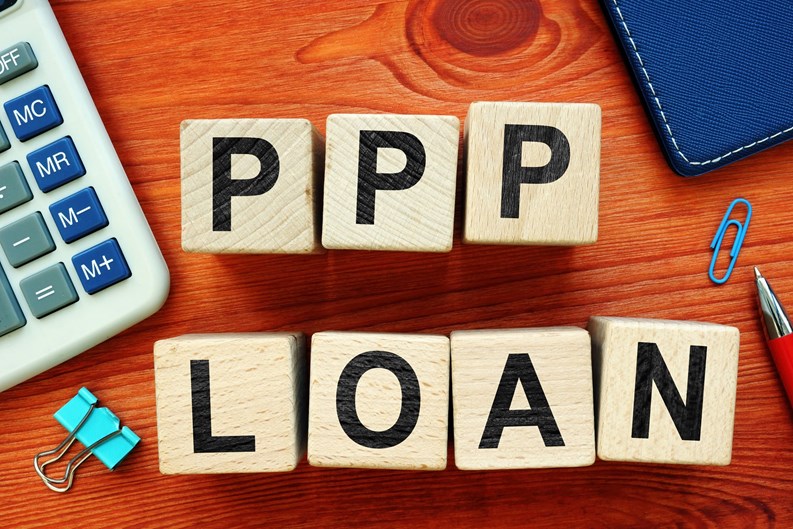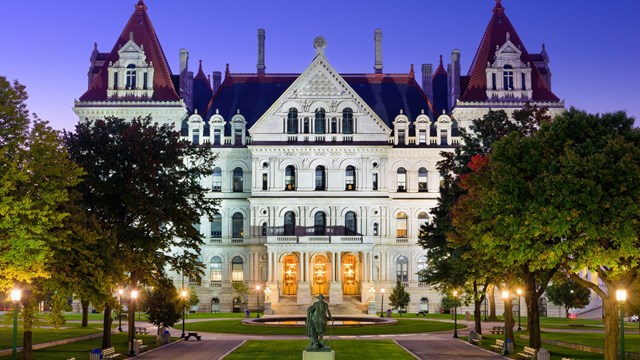While individuals and businesses across the country and around the globe attempt to maintain some semblance of stability in a world reeling from the medical, emotional, social, and economic devastation of the coronavirus pandemic, identifying and securing assistance from the U.S. federal government has presented its own set of challenges and frustrations.
Much like the tens of millions of Americans who have filed for unemployment in the last couple of months have found, the sheer numbers of people in need has made the process of applying for assistance extremely time-consuming. It has also been riddled with technical failures thus far -- to say nothing of the uncertainty of actually receiving the funds. The same has been reported by thousands of small businesses vying for their share of the funds released by the Coronavirus Aid, Relief and Economic Security (CARES) Act.
An added layer of uncertainty is preventing hundreds of thousands of co-ops, condos, HOAs, and other multifamily housing entities across the country from obtaining federal loan assistance. Although multifamily housing corporations and associations are nonprofits, and therefore don’t participate in “active” business, they are still organized as businesses under state laws, and employ laborers, managers, security personnel, skilled tradespeople, office workers, and other professionals as any other business might.
In addition to housing, many also lease space to commercial tenants, and provide community services and activities. Their operating budgets depend on owners and shareholders paying common charges every month, and on commercial tenants and lessees paying rent and usage fees. When those revenue streams are destabilized or suspended, as is now the case with so many individuals losing incomes and businesses losing customers, co-ops, condos, and HOAs are in jeopardy of not being able to pay for utilities, taxes and debts, and salaries for essential employees.
Most buildings and communities rely on a team of workers to provide maintenance, cleaning, security, repairs, and general operations to keep them functioning. For that reason, these employees have been designated ‘essential’ in jurisdictions where stay-home orders are in place. They are still going to work, risking their own safety to ensure that the communities they serve can keep up with enhanced cleaning and sanitation routines, evolving protocols for visitors and deliveries, and the provision of essential services. When these staff members cannot work—because they themselves are ill, or because they can’t risk the health of a vulnerable family member for whom they are a caregiver—boards or managers must bring in temporary employees (usually at higher rates), or stretch their remaining employees (and overtime budget) to cover the vacancies.
Banking on Banks
One might reasonably assume that ensuring payroll for essential building and HOA workers would be a priority at the federal level. Yet when seeking such protection from the CARES Act’s Paycheck Protection Program (PPP), a great many housing association and cooperative boards have faced a wall of confusion and contradiction.
For example, small businesses looking to secure one of the PPP’s potentially forgivable loans to cover payroll and other expenses caused by the coronavirus crisis are told to go through their existing bank. But this may be easier said than done in many cases. Not only has National Cooperative Bank (NCB), a leading lender to housing associations and cooperatives around the country, stated plainly on its website regarding PPP eligibility: “Unfortunately, housing cooperatives, condo associations, and homeowner associations are not eligible for this program” (emphasis theirs), and according to the site, the bank is no longer accepting applications for PPP loans at all. (This writer was told by NCB reps that an existing banking relationship was required in order to be connected to a representative who could speak on the bank’s position vis-a-vis the PPP.)
Boards seeking legal guidance on the issue may also get different responses depending whom they speak to. The board president of a large cooperative in Manhattan said in an email that he has “been sent and read several opinions from major law firms who represent the co-op and housing communities. All advised against submitting an application [for PPP] until it is clear that housing cooperatives are covered by the law, or by any new amendments or bills. These legal opinions recommend that a board member not sign a sworn application as required, as that could subject that board member to criminal liabilities -- and just as importantly, void their Directors & Officers (D&O) insurance.”
Conversely, the law firm of Gallet, Dreyer & Berkey counts more than 300 co-op and condo buildings in the New York metropolitan area as clients, and partner David L. Berkey says that he “has always recommended that co-ops apply for PPP loans, since the Act enlarged the eligibility requirements for 7(a) loans. We interpret the new [SBA] guidance as confirming our position that co-ops may apply for PPP loans.” Berkey refers here to components of the legislation that reference existing laws that leave in question the eligibility of housing corporations and associations, and subsequent language that includes cooperatives as eligible businesses.
To wit: whereas the CARES Act language seems to expand the list of businesses eligible to receive loans administered by the SBA to “any business concern” that employs fewer than 500 people, the SBA’s own Interim Rule does not specifically clarify its pre-CARES language -- which excludes “[r]esidential facilities that do not provide healthcare and/or medical services.” Additionally, Berkey points out that as per provision 13 CFR 120.110(c) of the Interim Final Rule “‘Passive businesses owned by developers and landlords that do not actively use or occupy the assets acquired or improved with the loan proceeds’ are ineligible to receive SBA loans.” As he indicates, “This regulation clearly should not apply to cooperative and condominiums, whose owners do actively use and occupy their buildings” (emphasis his).
A Tale of Two Condos
While multifamily communities up north struggle with legislative lacunas and conflicting counsel regarding their loan eligibility, a certain HOA in Florida has already been offered a $2 million loan through the PPP. The Miami Herald reports that the Fisher Island homeowners association— a “216-acre island full of pristine landscaping, swimming pools and tennis courts” situated in the nation’s wealthiest and most exclusive ZIP code—applied for a loan through the program on April 4 and received approval for the funds on April 20. According to the Herald, at the time of the writing, the association’s board was soliciting feedback from its membership on whether to accept the loan package, which it was required to do by April 30, or forfeit the funds.
Just a week prior to the Herald’s report about the federal assistance, Fisher Island made headlines when it was able to procure 1,800 rapid tests for COVID-19 antibodies from the University of Miami Health System with the intention of testing all 800 or so families on the island, as well as every employee who works to maintain and patrol it. About 130 of those employees are part of the Florida chapter of the Service Employees International Union (SEIU), whose spokeswoman Ana Tinsly told the paper that all remain employed and are being “treated well” by the association, with extra paid days off and careful attention to social distancing. As the Herald also notes, “It wasn’t immediately clear how the Fisher Island Community Association … would plan to use the money,” if they opt to accept it.
Organizations representing the other 73.5 million Americans living in community associations, cooperatives, and condominiums are still lobbying for inclusion of these businesses in the SBA’s Interim Final Ruling. National advocacy groups such as the Community Associations Institute (CAI) have issued statements calling on members and non-members to contact their Congressional representatives and to submit first-hand accounts of their own association’s struggles during the pandemic to, in the words of CAI Senior VP of Government & Public Affairs Dawn Bauman, “Use in our advocacy efforts to make the case for community associations.” Organizations and consortia on the local level are doing the same, hoping that their sheer numbers will prompt legislative action on their behalf.
According to a letter Berkey’s firm sent to the SBA on behalf of its multifamily clients, the confidence of some communities notwithstanding, it is clear that the general lack of clarity around who does and does not qualify “has caused overwhelming apprehension to cooperatives, condominiums, and other landlords as to whether they may apply and are eligible for PPP loans. This confusion has caused thousands of employers not to file PPP applications on the advice of attorneys, managing agents, and at least one well known lender.”
Ironically, the Interim Final Rule itself prefaces its provisions by stating: “The intent of the Act is that SBA provide relief to America's small businesses expeditiously. This intent, along with the dramatic decrease in economic activity nationwide, provides good cause for SBA to dispense with the 30-day delayed effective date provided in the Administrative Procedure Act. Specifically, small businesses need to be informed on how to apply for a loan and the terms of the loan under section 1102 of the Act as soon as possible because the last day to apply for and receive a loan is June 30, 2020. The immediate effective date of this interim final rule will benefit small businesses so that they can immediately apply for the loan with a full understanding of loan terms and conditions.”
Even though a second tranche of funding was approved for the CARES Act by Congress on April 24, the continuing lack of clarity and underlying questions about how the relief is being disbursed will prevent needy businesses from maintaining their essential services and keeping their employees on the job. With a first-come, first-served model of distribution, those who are still wading through the provisional incongruities will likely remain shut out of benefits programs until there is a clear ruling.
Darcey Gerstein is Associate Copyeditor for The Cooperator.










Leave a Comment